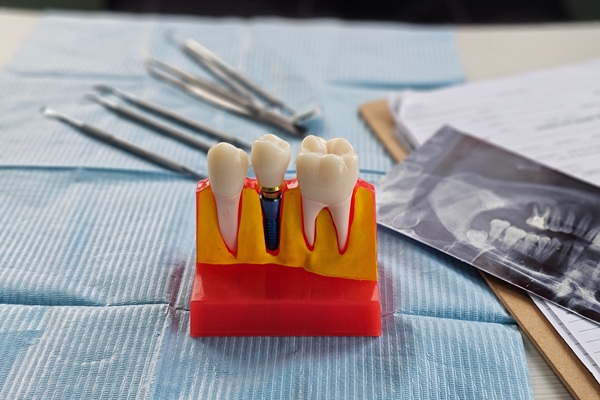Do I Need Scaling and Root Planing?

Scaling and root planning treats periodontal disease. However, not every case of periodontal disease requires scaling and root planing. This review helps you determine if treatment is necessary for you and discusses how the treatment process works and how to prevent gum disease.
Scaling and root planing treats gingivitis and periodontitis
Anyone who has signs of a progressive stage of periodontal disease should visit a dentist to determine if scaling and root planing is necessary. The dental team can put together a detailed treatment plan to address your symptoms and ensure that you are able to prevent severe periodontal disease in the long term.
Scaling and root planing explained
Scaling and root planing, also called deep dental cleaning, is a dental procedure that addresses moderate to severe cases of periodontal disease. There are two main types of periodontal disease: gingivitis and periodontitis. Periodontitis is a more severe form that often requires scaling and root planing. The goal of treatment is to remove all bacteria, plaque and tartar below the gum line and on the tooth root. Scaling and root planing does not cure periodontitis, but it is a first step toward overcoming the condition in the long term.
Signs that indicate the need for scaling and root planing
Not every case of periodontal disease requires scaling and root planing. However, if the condition leads to more severe symptoms, then a deep cleaning may be necessary. These signs include:
- Gum pockets
- Bone loss
- Gum discoloration
- Swollen gums
- Gum bleeding
- Exposed tooth roots
The most notable sign that indicates a need for scaling and root planing are gum pockets. When gum pockets are deeper than 4 millimeters, then the patient likely needs scaling and root planing to stop the gum pockets from getting deeper and to reattach the gums to the tooth root.
How scaling and root planing works
Scaling and root planing involves applying a numbing agent and local anesthetic, scraping away the plaque and tartar from the root of teeth and below the gum line (scaling) and smoothing the tooth roots to allow gums to reattach (root planing). The procedure takes from half an hour to two hours. The dentist may need to break the procedure up into two visits. The first would consist of scaling and root planing one or two quadrants and completing the rest on an additional visit.
How to prevent periodontal disease
After scaling and root planing, it is important to follow the dentist’s instructions, which may include using mouthwash to improve periodontal health. Patients should also brush and floss regularly to prevent a buildup of plaque and tartar and remove food and bacteria from between teeth and along the gum line as quickly as possible. Regular dental cleanings are also strongly encouraged when preventing periodontal disease.
Discuss scaling and root planing with a licensed dentist
You can reach our dental team by phone or by sending us a message. We can arrange a time for a visit to discuss whether you need scaling and root planing and to answer all of your questions related to periodontal health.
Request an appointment here: https://www.riverfrontdentalassociates.com or call Riverfront Dental Associates at (423) 303-7869 for an appointment in our Chattanooga office.
Check out what others are saying about our services on Yelp: Scaling and Root Planning in Chattanooga, TN.
Related Posts
Anyone who has ever had gum disease knows that it can have serious consequences. If you have the signs and symptoms of this condition, you should act now and start treating it. In the early stages, it is possible to cure it and restore the full health of your gums. Waiting too long could have…
Gum disease is a common oral health issue that dentists treat. You may focus more on cavity prevention, but gum issues can be just as critical to your wellness. Putting off treatment can cause more serious issues. You should first recognize the signs and symptoms of this condition and then seek your dentist’s help right…
Preventive dentistry is a branch of dentistry that focuses on protecting your mouth against common dental issues like tooth decay and gum disease. It include simple things that you can do independently, like practicing oral hygiene, and procedures performed by dentists, like dental cleanings.Taking good care of your mouth makes you less likely to develop…
A broken dental crown is often a sudden issue. Dental crowns are permanent dental restorations. A crown may dislodge because of an injury, an accident, wear, or even old age. The dentist will determine if your crown needs repairs or a replacement. If you want to know what the dentist does to repair or replace…
